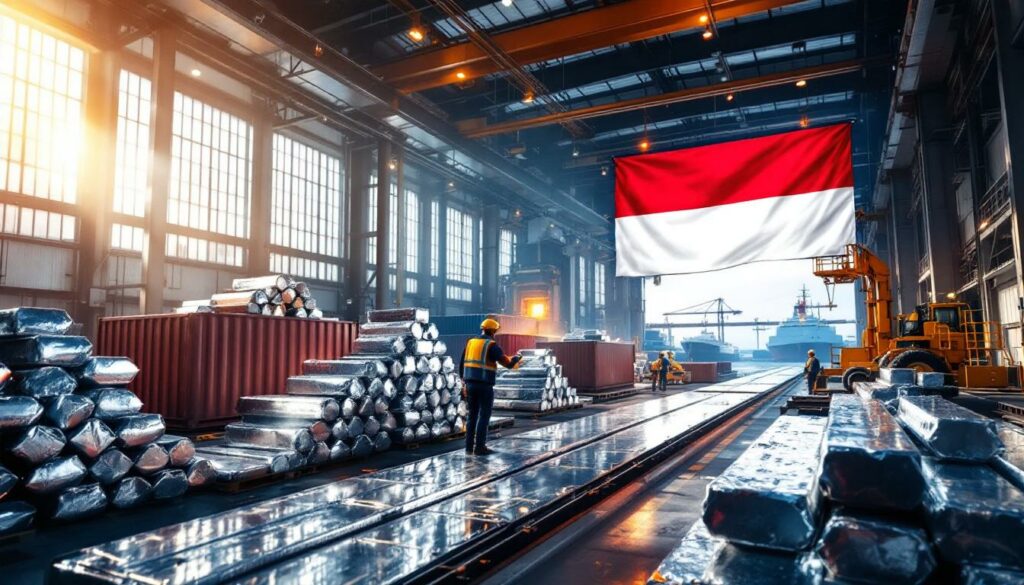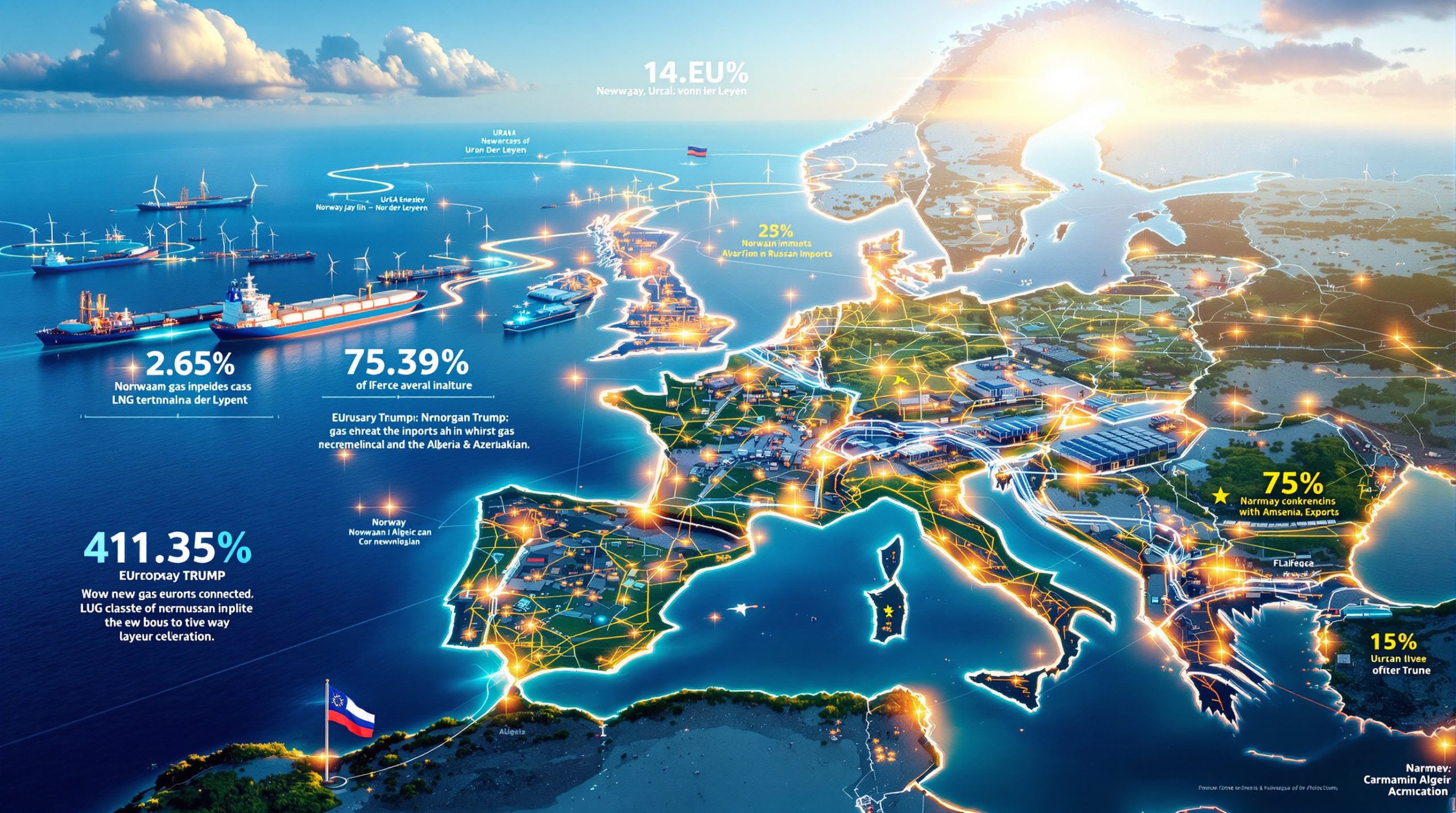What is Aluminium P1020A and Why is it Important?
Aluminium P1020A represents the industry standard for primary aluminum, establishing the benchmark against which other grades and alloys are measured. This high-purity aluminum grade contains a minimum of 99.7% aluminum with strict limitations on impurities—specifically silicon content must not exceed 0.10% and iron content must stay below 0.20%.
The grade is produced in several standard forms including ingot, T-bar, and sow, all conforming to London Metal Exchange (LME) specifications that facilitate standardized global trading. This standardization makes P1020A the foundation for aluminium P1020A fob Indonesia pricing worldwide.
Definition and Specifications of Aluminium P1020A
The P1020A designation indicates a primary aluminum product with controlled chemistry that balances purity with practical manufacturing considerations. Its 99.7% minimum purity ensures consistent performance while allowing for trace elements that occur naturally in the production process.
This grade's specifications include:
- Maximum silicon content: 0.10%
- Maximum iron content: 0.20%
- Minimum aluminum content: 99.7%
- Standard forms: Ingot, T-bar, and sow
- Full compliance with LME deliverable specifications
The controlled impurity levels make P1020A suitable for a wide range of applications, from extrusion to foundry casting, while its standardized characteristics enable efficient hedging and trading.
Strategic Importance in Global Aluminum Markets
P1020A serves as the fundamental pricing benchmark in global mining landscape markets, functioning as the reference point from which premiums and discounts for other grades are calculated. This critical role stems from several factors:
- It provides the baseline for determining regional premiums based on local supply-demand dynamics
- It establishes the foundation for value-added premiums on specialized aluminum products
- It enables standardized risk management through futures and options markets
- It facilitates price transparency and discovery across international markets
- It creates liquidity in physical trading by standardizing contract specifications
The grade's importance extends beyond pricing mechanisms—it represents the primary input for downstream fabrication processes that transform raw aluminum into value-added products for construction, transportation, packaging, and electrical applications.
How Does Indonesia's Aluminum Export Market Work?
Indonesia has transformed its position in the global aluminum supply chain over the past decade, pivoting from primarily exporting bauxite to becoming an increasingly significant producer of primary aluminum. This strategic shift has been driven by government policies encouraging domestic processing of raw materials and significant investments in smelting capacity.
Indonesia's Emerging Role in Global Aluminum Supply
The Indonesian government has implemented policies designed to capture more value from the country's rich mineral resources, particularly through downstream processing requirements. These initiatives have attracted substantial investments in aluminum smelting capacity, positioning Indonesia to compete with traditional suppliers.
Key factors in Indonesia's aluminum market development include:
- Significant expansion in domestic smelting capacity backed by foreign direct investment
- Strategic energy policies supporting aluminum production, including dedicated power infrastructure
- A shift from raw bauxite exports to value-added aluminum products
- Competitive production costs leveraging domestic coal and hydroelectric power
- Development of supporting infrastructure including ports and transportation networks
The government's export policies have accelerated this transformation, requiring mining companies to process raw materials domestically rather than shipping unprocessed ore overseas. This has catalyzed billions in investment in new aluminum smelting facilities.
Export Logistics and Trade Flows
Indonesia's aluminum export logistics operate primarily through a FOB (Free On Board) basis, with key ports handling primary aluminum shipments to destinations throughout Asia and beyond. The minimum standard transaction involves 500 tonnes with payment typically arranged through telegraphic transfer or letters of credit on sight.
The export infrastructure includes:
- Strategic deep-water ports capable of handling bulk aluminum shipments
- Established shipping lanes connecting to major consumption markets in East Asia
- Typical vessel requirements including container and break-bulk options
- Documentation and customs clearance procedures aligned with international standards
- Logistical advantages including proximity to growing Asian markets
Exports predominantly flow to manufacturing hubs in Japan, South Korea, and other Southeast Asian nations, with growing volumes to China depending on arbitrage opportunities and import policies. The FOB Indonesia designation places responsibility for loading and export clearance with the seller, with the buyer assuming risk once the goods are loaded aboard the vessel.
What Does the FOB Indonesia Premium Assessment Cover?
The Aluminium P1020A FOB Indonesia premium assessment provides crucial market intelligence on the difference between regional Indonesian aluminum prices and the global LME benchmark. This premium reflects local market conditions, logistics costs, and regional supply-demand dynamics specific to Indonesia-origin material.
Premium Assessment Methodology
Fastmarkets' premium assessment follows a structured methodology designed to capture accurate market prices through systematic data collection and analysis. Key aspects of the assessment include:
- Frequency: Published weekly every Wednesday at 7pm Singapore time
- Minimum transaction quantity: 500 tonnes
- Delivery timeframe: Within one calendar month
- Payment terms: Telegraphic Transfer/Letters of Credit on sight
- Normalization: Adjustments for non-standard terms, quantities, or timing
- Data collection: Submissions from diverse market participants including producers, traders, and consumers
The assessment methodology employs a rigorous verification process to ensure the integrity of reported prices. Fastmarkets analysts evaluate submitted data against historical trends, cross-reference with related markets, and apply statistical techniques to identify outliers before finalizing the assessment.
Market Factors Influencing the Premium
The Indonesia FOB premium fluctuates based on multiple market variables that affect the regional supply-demand balance and export economics. Understanding these drivers helps market participants anticipate potential price movements:
- Regional supply-demand balance: Shifts in production capacity utilization versus consumption rates
- Energy costs: Variations in coal and electricity prices impacting smelting economics
- Shipping availability: Container shortages or bulk vessel limitations affecting freight costs
- Regulatory environment: Changes to export duties, environmental regulations, or trade policies
- Currency movements: Fluctuations in the Indonesian rupiah affecting production costs and competitiveness
- Production disruptions: Weather events, power shortages, or technical issues at smelters
Market Insight: The premium's introduction reflects expectations of increasing Indonesia-origin aluminum exports, signaling the country's growing importance in global supply chains. The assessment provides critical price transparency as this market develops.
How Does the Indonesia FOB Premium Compare to Other Regional Benchmarks?
Understanding the relationship between Indonesia's FOB premium and other established regional benchmarks provides crucial context for market participants. These comparative relationships reveal arbitrage opportunities, regional advantages, and evolving market dynamics.
Comparative Analysis with Other Asian Premiums
The Indonesia FOB premium exists within a complex ecosystem of Asian aluminum premiums, each reflecting specific regional conditions. The spread relationships between these premiums illuminate important market dynamics:
- CIF Japan premium: Traditionally the benchmark for Asian markets, typically trading at a premium to Indonesia FOB due to additional freight and insurance costs
- South Korea and Taiwan premiums: Generally maintain consistent spreads to Indonesia based on logistics differentials
- CIF Malaysia/Vietnam: Emerging benchmarks with closer correlation to Indonesia FOB given regional proximity
These premium relationships are not static but evolve with changing trade flows, infrastructure developments, and shifts in production economics. The Indonesia FOB premium's position relative to other Asian benchmarks provides valuable signals about regional arbitrage opportunities and supply chain efficiencies.
Global Context and Benchmark Positioning
Within the global aluminum market, the Indonesia FOB premium represents one node in an interconnected network of regional price references. Its relationship to global benchmarks reveals broader market trends:
- LME cash price relationship: The fundamental base reference to which the premium is added
- Midwest US premium comparison: Typically trades at a significant discount reflecting transportation costs and import duties
- European duty-paid premium: Generally maintains a premium to Indonesia FOB reflecting higher production costs and regulatory environment
- Correlation with global freight indices: Shipping cost fluctuations affect premium spreads between regions
- Impact of producer pricing strategies: Strategic decisions by major producers influence regional premium differentials
The Indonesia FOB premium's position within this global mining landscape context helps market participants evaluate cross-regional opportunities and optimize global supply chains. Tracking these relationships provides insights into shifting competitive dynamics between production regions.
What Drives Price Movements in the Indonesia FOB Premium?
The Indonesia FOB premium experiences fluctuations driven by complex interactions between production economics, logistics constraints, and demand patterns. Understanding these drivers helps market participants anticipate potential price movements and make informed trading decisions.
Supply-Side Factors
Indonesia's aluminum production capacity and operational efficiency significantly influence the FOB premium. Key supply-side drivers include:
- Production capacity utilization: Higher utilization rates typically pressure premiums downward as supply increases
- Energy costs and availability: As a key input cost, energy price fluctuations directly impact production economics
- Raw material pricing: Alumina, carbon anodes, and other input costs affect production margins and supply responses
- Export policies: Government regulations on exports can create supply constraints or incentivize increased shipments
- Maintenance schedules: Planned and unplanned production outages affect available export volumes
- Producer inventory strategies: Strategic stocking or destocking decisions by major producers influence market balance
Indonesia's coal-based power generation creates a unique cost structure compared to regions utilizing hydroelectric or natural gas power, making the premium sensitive to fossil fuel price movements and environmental regulations.
Demand-Side Influences
Consumer behavior and downstream manufacturing activity create the demand pull that balances against supply factors in determining premium levels:
- Regional manufacturing activity: Industrial production rates in key Asian economies directly impact aluminum consumption
- Automotive and construction sectors: Performance in these aluminum-intensive industries drives demand fluctuations
- Inventory management: Consumer destocking or restocking cycles create temporary demand surges or contractions
- Substitution economics: Price relationships with competing materials affect demand elasticity
- Seasonal patterns: Construction cycles and manufacturing schedules create predictable demand fluctuations
- Economic growth indicators: GDP expansion in consuming markets correlates with aluminum demand trends
Analysis Note: The expected increase in Indonesia-origin aluminum exports that prompted the creation of this premium assessment suggests producers anticipate growing demand from regional manufacturing hubs, particularly as supply chains regionalize and manufacturers seek alternatives to traditional suppliers.
How Can Market Participants Use This Premium Assessment?
The Aluminium P1020A FOB Indonesia premium assessment provides actionable intelligence that serves various market participants in different ways. From physical traders to end-users, this price reference enables improved decision-making across the aluminum supply chain.
Applications for Traders and Producers
For aluminum producers and trading companies, the premium assessment offers multiple strategic applications:
- Physical contract pricing: Establishing floating price mechanisms linked to the published assessment
- Risk management: Developing hedging strategies to protect margins against premium volatility
- Production planning: Optimizing output based on premium trends and regional price signals
- Marketing strategies: Positioning offers competitively against alternative origins
- Inventory management: Making informed decisions about when to build or release stocks
- Strategic planning: Evaluating market entry or capacity expansion based on premium trends
Producers can utilize the assessment to benchmark their realized prices against the broader market, while traders can identify arbitrage opportunities between Indonesia and alternative origins.
Benefits for Consumers and End-Users
Aluminum consumers and manufacturing companies can leverage the premium assessment to optimize procurement strategies and supply chain decisions:
- Cost benchmarking: Comparing supplier offers against published market references
- Procurement strategies: Developing strategic sourcing plans based on regional price differentials
- Contract negotiations: Establishing fair price mechanisms linked to transparent benchmarks
- Budgeting and forecasting: Creating more accurate financial projections for raw material costs
- Supply chain optimization: Evaluating sourcing alternatives based on delivered price economics
- Risk management: Implementing hedging strategies to stabilize input costs
By incorporating the premium assessment into their decision-making processes, end-users can improve cost transparency, reduce procurement risks, and optimize working capital management.
What Are the Key Trading Specifications?
Understanding the standardized specifications for Aluminium P1020A trading in Indonesia provides essential context for market participants. These specifications establish the baseline for contract negotiations and ensure consistent quality standards across transactions.
Standard Contract Terms and Conditions
Market participants typically structure physical contracts around the following standard terms:
- Quality specifications: P1020A grade (99.7% minimum aluminum, silicon ≤0.10%, iron ≤0.20%)
- Physical form: Ingot, T-bar, or sow forms compliant with LME specifications
- Typical lot sizes: Minimum 500 tonnes, often in increments of 100-500 tonnes for larger contracts
- Incoterms: FOB (Free On Board) Indonesian ports, placing loading responsibility with the seller
- Payment terms: Telegraphic Transfer or Letter of Credit on sight
- Pricing mechanisms: Options include fixed price, floating based on LME plus premium, or formula-based approaches
- Delivery window: Typically within one calendar month of contract date
These standardized terms facilitate efficient negotiations and contract execution while providing sufficient flexibility to accommodate specific commercial requirements between counterparties.
Quality Control and Compliance Requirements
Ensuring consistent quality and regulatory compliance requires structured processes throughout the transaction lifecycle:
- Sampling procedures: Representative sampling methodologies following international standards
- Assaying protocols: Independent verification of chemical composition and physical characteristics
- Quality certification: Mill test certificates documenting compliance with specified standards
- Dispute resolution: Established procedures for addressing quality or delivery disagreements
- Sustainability documentation: Increasing requirements for carbon footprint disclosure and responsible sourcing
- Export compliance: Proper documentation including certificates of origin and export permits
- Environmental standards: Compliance with evolving regulations on production methods and emissions
Industry Insight: As sustainability transformation concerns grow in importance, market participants increasingly incorporate ESG criteria into trading specifications. This includes carbon footprint reporting, responsible sourcing certifications, and compliance with evolving environmental regulations.
How is Market Information Collected and Verified?
The reliability of the Aluminium P1020A FOB Indonesia premium assessment depends on robust data collection and verification processes. Understanding these methodologies helps market participants evaluate the assessment's integrity and representativeness.
Data Collection Methodology
Fastmarkets employs a systematic approach to gathering market intelligence from diverse sources across the aluminum value chain:
- Participant diversity: Input from producers, traders, consumers, and brokers to ensure balanced perspective
- Submission formats: Standardized data collection through email, telephone, and digital platforms
- Transaction types: Consideration of concluded deals, bids, offers, and assessments of prevailing market values
- Timing parameters: Data collection within specified windows aligned with market trading patterns
- Normalization techniques: Standardization of non-typical transactions to ensure comparability
- Confidentiality protocols: Strict data privacy measures protecting submitter identities and proprietary information
The assessment incorporates direct transaction data when available, supplemented by firm bids and offers, and supported by assessments from knowledgeable market participants when transaction data is limited.
Quality Assurance and Governance Framework
To maintain assessment integrity, comprehensive quality control processes govern the entire assessment workflow:
- Editorial oversight: Multiple levels of review before publication
- Methodology consistency: Adherence to published assessment specifications
- Statistical validation: Identification and investigation of outlier data points
- Market consultation: Regular engagement with participants to refine methodologies
- Compliance standards: Alignment with IOSCO principles for price reporting agencies
- Appeals process: Structured procedures for addressing stakeholder concerns
- Regular methodology review: Periodic evaluation of assessment approaches against market evolution
These governance mechanisms ensure the assessment accurately reflects genuine market conditions while maintaining the highest standards of editorial integrity and independence.
What Are the Future Trends for Indonesia's Aluminum Export Market?
Indonesia's aluminum export market stands at an inflection point, with multiple factors poised to reshape its trajectory in the coming years. Understanding these emerging trends provides valuable strategic context for market participants.
Emerging Market Developments
Several developments signal important shifts in Indonesia's position within the global aluminum landscape:
- Capacity expansion: Significant new smelting projects under development, increasing export potential
- Downstream integration: Growing emphasis on higher-value aluminum products beyond primary metal
- Energy transition investments: Initiatives to incorporate renewable energy into aluminum production
- Infrastructure enhancements: Port expansions and logistics improvements reducing export friction
- Technological advancement: Implementation of more efficient smelting technologies reducing carbon intensity
- Competitive repositioning: Strategic moves to compete directly with traditional suppliers to Asian markets
These developments suggest Indonesia's aluminum sector is moving beyond its initial development phase toward a more mature and diversified industry position. The establishment of the FOB Indonesia premium assessment provides an important tool for tracking this evolution.
Long-Term Outlook and Strategic Implications
The long-term trajectory for Indonesia's aluminum export market will be shaped by several structural factors with significant implications for global supply chains:
- Energy advantage sustainability: Long-term viability of Indonesia's power cost advantages against environmental pressures
- Regional demand growth: Expansion of manufacturing capacity in Southeast Asia increasing nearby consumption
- Policy evolution: Potential changes to Indonesia's resource nationalism approach and export regulations
- Sustainability premium development: Growing market differentiation based on carbon intensity of production
- Supply chain regionalization: Strategic shifts toward shorter, more resilient supply networks
- Market maturation: Development of more sophisticated trading and risk management practices
Forward-Looking Perspective: The introduction of the Aluminium P1020A FOB Indonesia premium assessment reflects expectations of increasing export volumes and market significance. This suggests
Ready to Stay Ahead of Major Mineral Discoveries?
Discover significant investment opportunities before the market with Discovery Alert's proprietary Discovery IQ model, which delivers instant notifications of major ASX mineral discoveries and transforms complex data into actionable insights. Explore why major mineral discoveries can lead to exceptional returns by visiting Discovery Alert's dedicated discoveries page and begin your 30-day free trial today.




